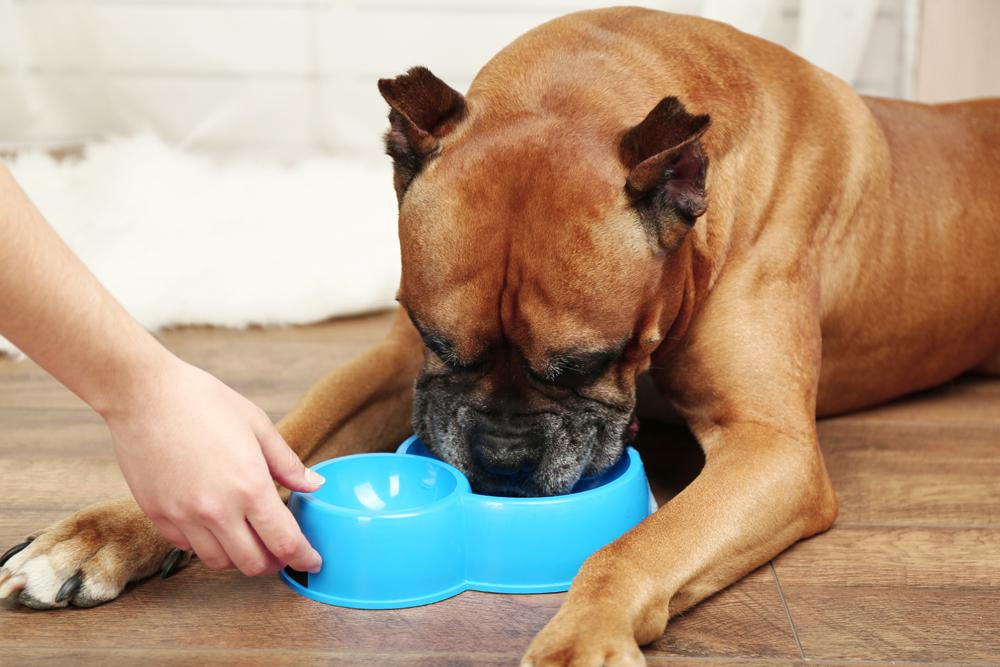Preventing Dehydration in Pets
- posted: Aug. 11, 2017
Tips for Preventing Dehydration in Pets from an Etobicoke, ON Veterinarian
Pet dehydration can be a serious issue for pets. If your pet doesn't drink for two or three days, your pet may become dehydrated, depending on the size of the animal. In some cases, it takes longer. However, you never want to let the problem increase in severity because dehydration in pets can lead to death.

Signs of Dehydration
Dehydration may occur from a pet decreasing fluid intake or increasing fluid output. It may stem from a disease, sickness, disorder or heat exhaustion. It could be caused by a parasite, poisoning, inflammation or irritation of the gastrointestinal tract, an infection or an ulcer, just to name a few.
In its early stages, pets who suffer from dehydration may slow down in pace or feel more apprehensive or less animated. Your pet might pant excessively. You might notice your pet feels warm. Weakness is possible. You might notice your pet's pulse is weak. Your animal's mouth, nose, and gums may lack moisture. As the dehydration worsens, you might notice your pet's eyes look sunken in.
How To Test For Signs Dehydration
You can check your furry friend for dehydration by conducting the pinch test. This particular evaluation consists of pinching your pet's skin gently. When you do, take notice how much elasticity his or her skin has. If the skin returns back to its original shape immediately, your pet is more than likely hydrated. If your pet's skin doesn't return back to normal immediately, it could be a sign your pet is dehydrated. In the later stages, your pet might collapse, have dark urine or become unresponsive.
You can also determine if your pet is dehydrated by using the gum test, which consists of placing your index finger firmly on your dog's gum until they turn white. Remove your finger and analyze how quickly it takes for the blood to flow back to the gums. You'll notice in dehydrated animals, the gums take longer to return back to pink.
Preventing Dehydration
You want to make sure if your pet is vomiting, you continuously offer fluid, in particular, right after your pet stops vomiting. You may want to use a drink like Pedialyte. It's comprised of the electrolytes your pet may have lost when he or she was ill. Generally, you want your pet to drink between two to four milliliters per hour.
Although you should always make sure water is accessible for your pet, it becomes even more vital when it's hot outside. Always leave a dish out of water out where your pet has access to it, especially when it's hot outside. If you travel with your pet, you should always have water in the vehicle, especially in case you should happen to break down.
What to Do Once Your Pet is Dehydrated?
If your pet is already dehydrated or overexerted, you'll want to hydrate him or her slowly. Give your pet small amounts of water every few minutes, so your pet may pace his or herself. Keep in mind, your pet will throw up if he or she tries to drink too much at one time, especially after becoming dehydrated. If your pet would throw up, it only makes the dehydration worse. If your pet is severely dehydrated, IV fluids may be necessary.
If you suspect your pet is dehydrated or your pet is vomiting for several days in a row or won't drink, contact Richview Animal Hospital, serving Etobicoke, ON and the surrounding area, today by calling 416-245-8805.
Location
Find us on the map
Office Hours
8:00 am - 9:00 pm
8:00 am - 9:00 pm
8:00 am - 9:00 pm
8:00 am - 9:00 pm
8:00 am - 9:00 pm
9:00 am - 5:00 pm
Closed

